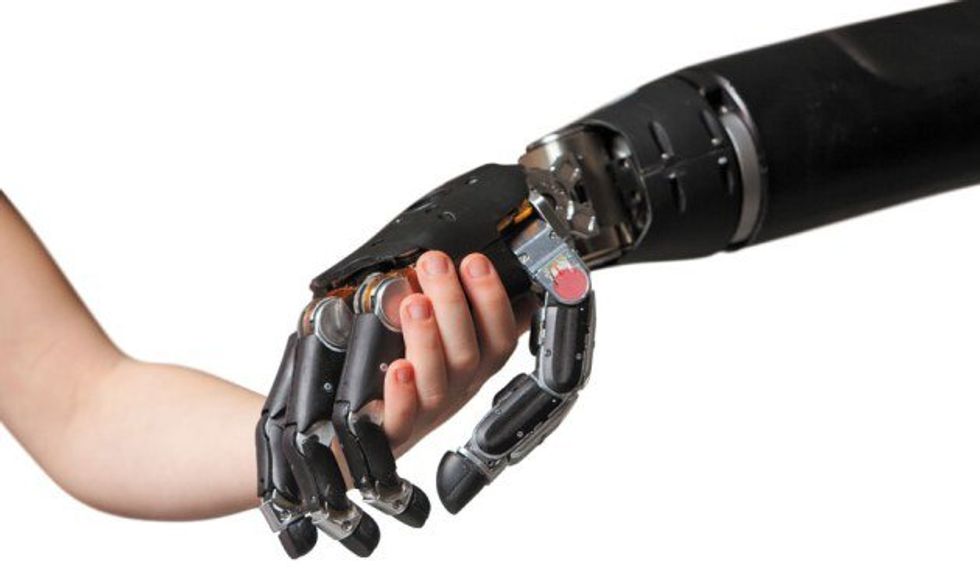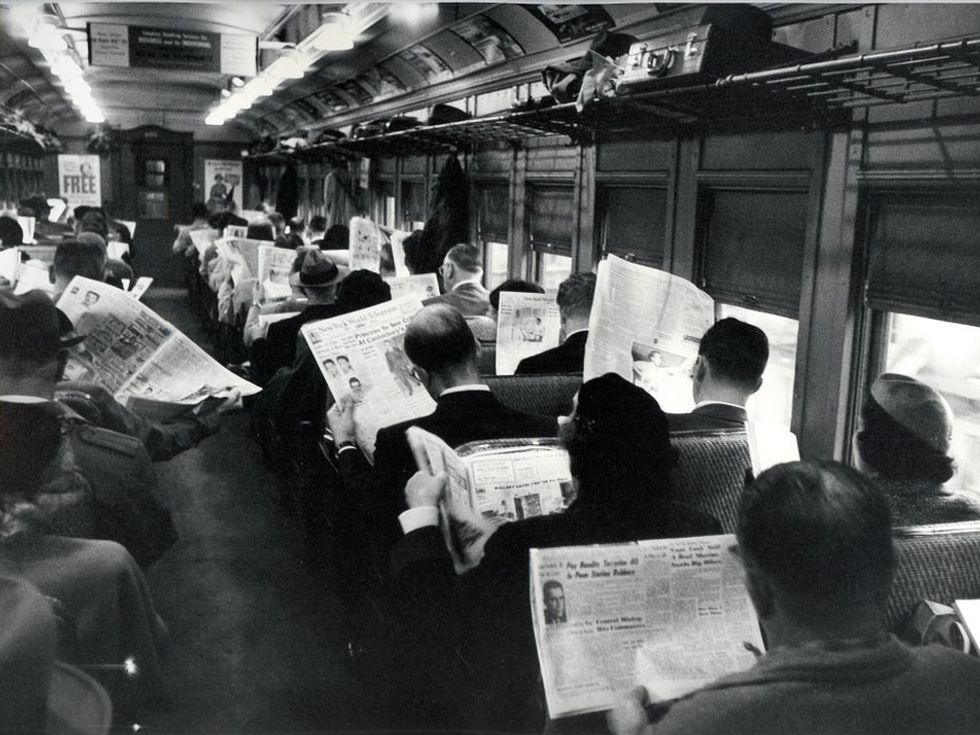Imagine passing a group of teenagers all on their cell phones. Many people’s first thought is of disgrace at the lack of personal communication. Sure, they could all be on their phones looking at Kylie Jenner’s latest Instagram post, but with access to 1.5 to 1.6 billion applications at their fingertips, I think it's time to stop assuming the worst.
Technology has been rapidly advancing ever since the 1500’s when people discovered the world wasn't flat, and the sun didn’t revolve around the earth. Humans have an ingrained sense of curiosity that will never be satisfied. However, just for argument's sake, let’s go back to the times before advanced electronic technology and communicate via home phones and the snail mail. As a culture, it is time to stop thinking about how technology has ruined the world, and instead focus on how the world will react to the technology given to us.
The most influential effect technology has had on the universe is that of medical advancements. While important electronic technology is used in all sorts medicinal practices, it’s important to focus on the key to these advancements, which is the simple rapid exchange of new information and discoveries through digitalized communication. Ever since Johanne Gutenberg discovered the printing press, ideas have been spread faster with each generation. Watching videos of new mind-controlled neuroprosthetics, minimally invasive surgeries with cutting edge tools, and augmentative and alternative communication tools could not only inspire those to pursue careers in advancing electronic technology, but it could also challenge others already in the field to make something even better.
More specifically, Google changed a blind man’s life with their self-driving car, allowing his first drive to take him to none other than Taco Bell. While sitting in traffic, we don’t think about having to fully depend on someone to drive us everywhere, even if we just want a snack. Steve Mahan, the owner of this new car, is more independent than he has been in years. Don’t forget those adorable videos of children or adults hearing for the first time that I know you spend hours watching. The more scientists link new technology with new knowledge about disabilities, the more improvements we can make to the human condition. If we are able to create a safe self-driving car, it is virtually impossible to avoid creating a “simple” phone with access to millions of apps to help with everyday life.
With these applications, smart phone users have access to an unrestricted world of knowledge. The slogan from Apple, “There’s an app for that,” rings true. Need help with your finances? There’s an app for that. Need to work on your paper due in an hour? There’s an app for that. Need directions? Need help staying organized? Want to work out? I think you know where I am going with this. With all these apps, people still assume that I’m not reading a new book I downloaded, scheduling a prescription pick up at CVS or writing this article while I wait for my class to start.
Another heart-warming effect of electronic technology is Skype or Facetime. If you’re similar to myself, watching soldiers coming home videos is just about the best way to spend hours on Facebook. Have you ever thought about the long period of time these brave men and women were away? To an outsider, it might seem outrageous that a 12-year-old boy has the newest version of an iPhone, but maybe he waits all day for call from his parent who is stationed overseas. If we are able to create these capabilities why stifle them?
Yes, I do believe it’s of the utmost importance for young adults to know how to communicate properly in person, and go outside to make memories instead of aimlessly scrolling through Twitter. Yet, in an industry worth $606 billion, it is impossible for us to ignore this generational change and we must embrace the fact that electronic technology is never going away, so we might as well make it great.So did cell phones really make us the "antisocial" and "dependent" generation, or the generation ready incite our passion of learning and new technology?
Sources:
http://www.theguardian.com/lifeandstyle/2012/sep/1...























